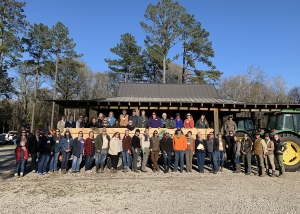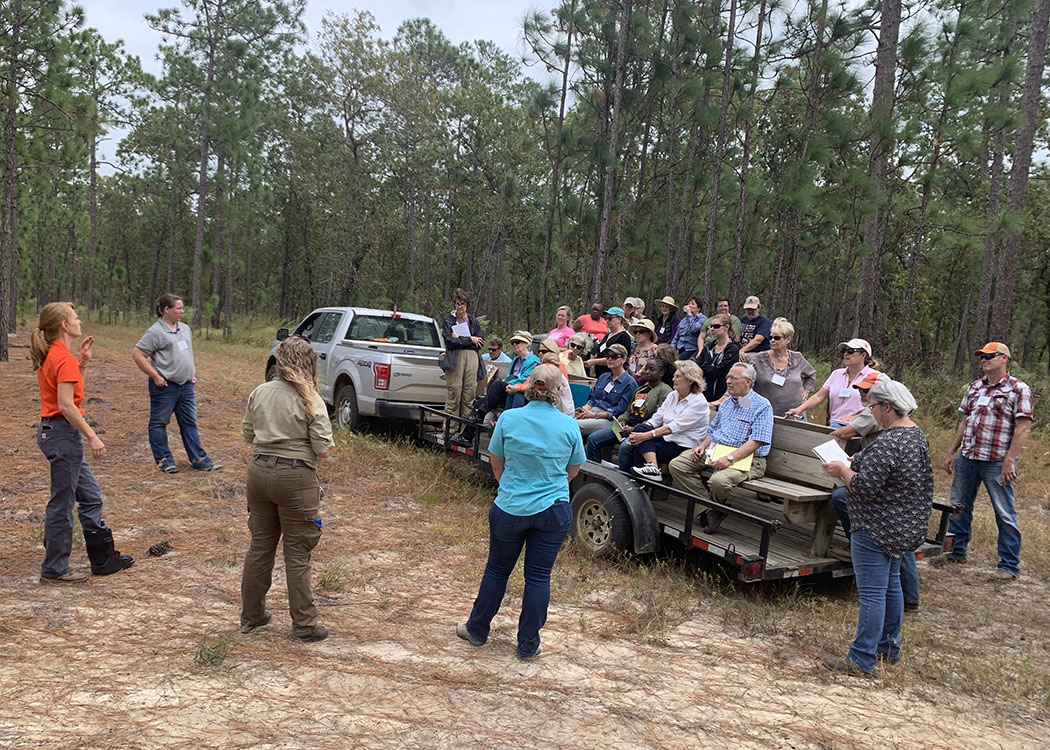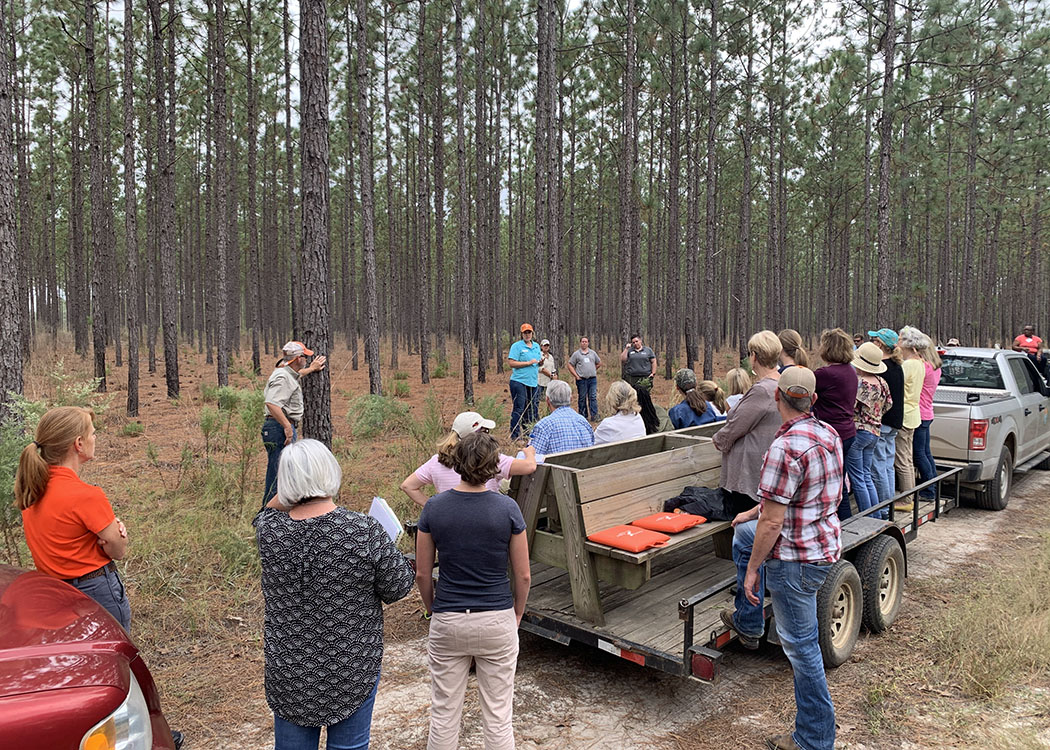
These full-day workshops included morning sessions to introduce participants to general forestry terms and concepts and guide them to resources they can use to help them manage their property.
Guest Blogger: Janet W. Steele
Area Extension Agent, Forestry and Wildlife
Orangeburg County Clemson Extension, Clemson University
The Clemson Cooperative Extension is collaborating with other agencies, organizations, and female‑owned natural resource management companies to host workshops to provide information to South Carolina’s women forest landowners.
The workshops are based on the successful Women Owning Woodlands (WOW) program. The workshops address the information needs of female forest owners and support women in forest leadership roles. It is a collaborative project of the National Woodland Owners Association and the US Forest Service and supported by a Sustainable Forestry Initiative Community Grant. The project also leverages the expertise of the South Carolina SFI Implementation Committees to enrich the link between people and forests and engage female landowners.
Sixty-three percent of South Carolina’s almost 13 million acres of forestland are private, family forests, the majority of which have a man as the primary owner and decision-maker. Given demographics in the state, a significant intergenerational land transfer in the next few decades is expected. The timber industry contributes $21 billion to the economy of South Carolina and family-owned forests provide a significant portion of this wood fiber so engaging women forest landowners about sustainable forestry is important for families and the state economy.
WOW provides an online resource for forest management materials and publications, as well as providing support to individual states organizing their own WOW networks. States have successfully hosted single- to multi-day forestry meetings, workshops, field tours and training, with topics ranging from treatment of invasive species and how to sell timber, to keeping forestland in the family and timber taxes. More than 60 women attended the South Carolina Women Owning Woodlands workshops in October 2019 in Colleton County and in March 2020 in Jasper County.

Photo credit: Dr. Molly Darr, postdoctoral associate with Clemson Extension

Photo credit: Janet W. Steele, Clemson University
The afternoon property tours highlighted sustainable forestry, wildlife habitat enhancement, longleaf pine restoration, and conservation practices.
“It is all demographics. The Baby Boomers are a huge bulge in the nation’s forest owner age distribution and are aging fast. Many owners are couples and women tend to live longer than men. You don’t need to be a forest economist to see the result, but it helps,” says Dr. Thomas Straka, Professor in the Forestry and Environmental Conservation Department of Clemson’s College of Agriculture, Forestry, and Life Sciences. He specializes in forest resource management and economics.
Since women tend to inherit property later in life, getting them involved when they are younger and more physically active will help them implement more forest management practices as landowners. However, most forestry education programs are constructed by male natural resource professionals for primarily male audiences, and there is a dearth of programs targeting female landowners or managers. WOW is helping to change this dynamic in ways that will help women and the communities they live in.
